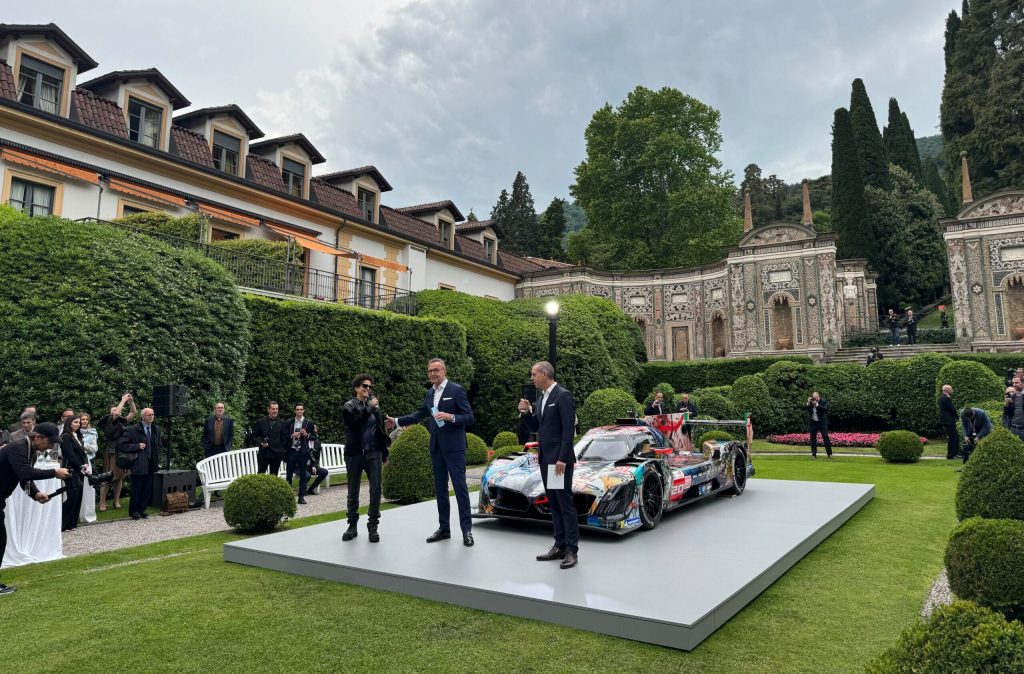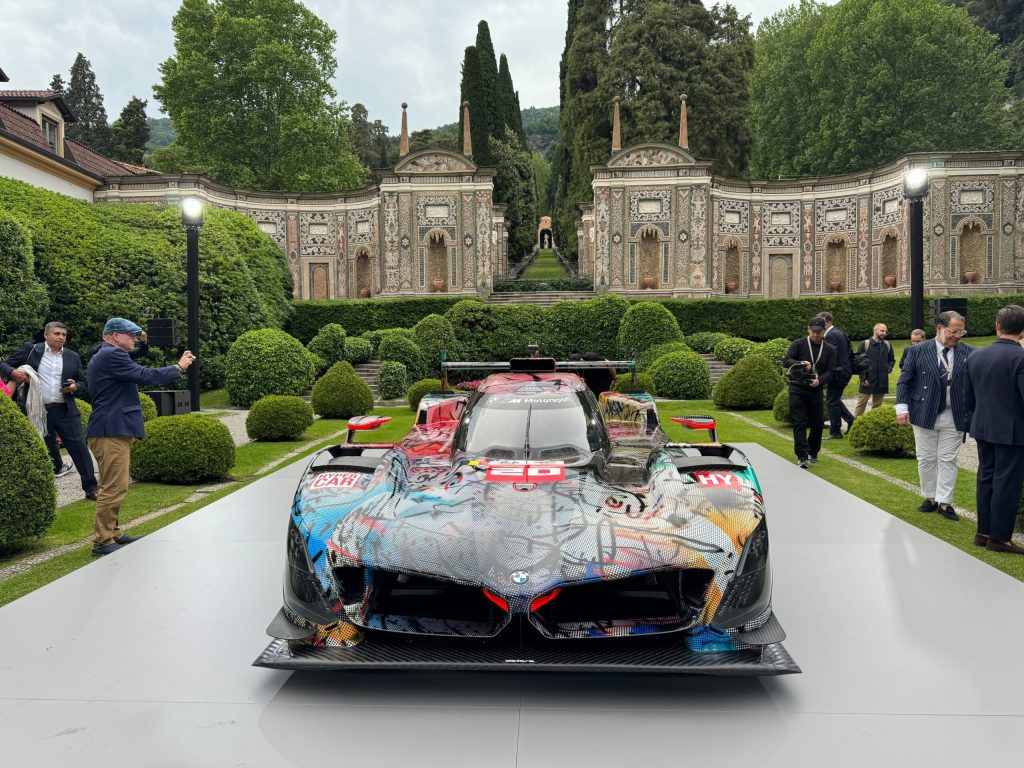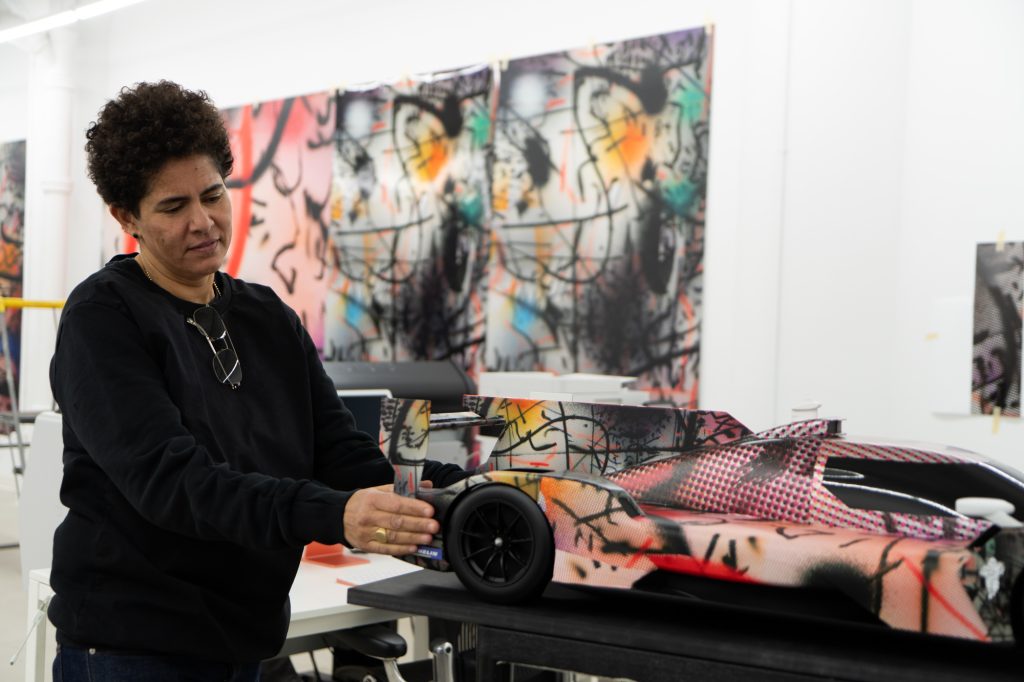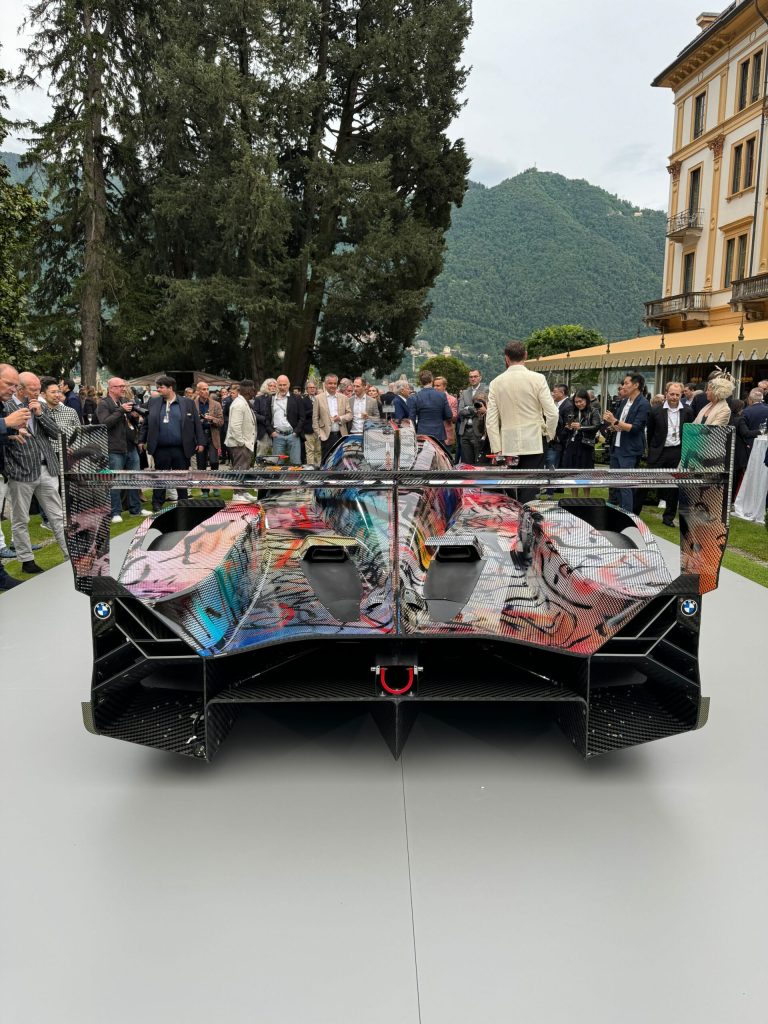BMW had two factory entries in the Hypercar class at this week’s 24 Hours of Le Mans, one of which was adorned with the art of Julie Mehretu. BMW revealed this M Hybrid V8, its 20th Art Car, at the Centre Pompidou in Paris on 22 May and subsequently shared it at Concorso d’Eleganza Villa d’Este at Lake Como, Italy later that week. Mehretu met with media at Villa d’Este and talked about her first rolling work of art and how the process gave her a new appreciation for the automotive world.

Mehretu, a New York–based contemporary artist, originally declined BMW’s offer to create the latest Art Car. She was unanimously selected by an independent jury of international museum directors for the role in 2018. During the Covid pandemic lockdown in spring 2020, she reconsidered: I was checking in with a lot of the people that I went to for guidance . . . I think all of us were doing that around the world to make sense of this time when we [had been] hypermobile. And then the next thing you know, we’re all sheltering in place and under strict quarantine. I was thinking these are the times where you push yourself, and so while we’re all sheltering in place to think about mobility became a really interesting space. I thought, just take this [commission] and open up a new door.
How much is your car to insure? Find out in four easy steps.
She knew nothing about racing but became a racing fan: I really enjoyed going to the pit stop [at the 2023 Rolex 24 at Daytona] and seeing the numbers of people who work in there that are all communicating in some way or another with the vehicle itself and with the drivers [and realising] that it is a team sport in that way. Going to Daytona was exhilarating – it was so much fun.

Although the Art Car debuted in May, Mehretu says it will not be done until after it races at the 24 Hours of Le Mans: The car will go through many transformations. Even the drivers you see going in and out of the car will mark up the car, and I made marks in that area thinking about that. There’s all the debris from the [track], the exhaust on the back, the car comes out just looking very different and we’ve discussed leaving it that way – you know, we’ll see what it looks like. If there are too many insects, we might have to do a little bit of hand washing, but we’ll see. I think with all of the [BMW Art] cars, the car has gone through the experience of the painting. The painting has transformed and marked up the car and then the painting – the car – will go through the race as the second major project [the first project being the wrap], and then it will be finished. [Driver Robin Frijns crashed the car just under two and a half hours into the race. BMW was able to get it back out on track, but it completed just 96 laps and finished 47th overall. – Ed.]
Her nephew, a car geek, was instrumental in helping her decide to take the BMW Art Car commission: My brother loves cars, and since my nephew was a child, tiny cars, toy cars, were always in his hands. That would be his meditation: Parking about 100 or 150 different toy cars in different configurations. He’s here with me [in Europe, for the Art Car’s debut] and he’s part of the reason I’ve done this project. He really was like, “please don’t say no, don’t say no. This is one of the things you should do!” And he’s loved it.

How she conceived the BMW Art Car in her studio: I had a scale model [of the BMW M Hybrid V8 race car] in the studio for a long time. I would just push the model around on a cart and it would go in front of different paintings at different times. And I just kept it there while I was working for the whole year. And then, about six months in, I saw this painting in front of it and then just thought of them together – I felt like the car could actually experience the painting. At first, I didn’t know how we were gonna approach that. [My assistant] Jackie Furtado worked with me on the digital sketches that [BMW] gave us, the vector files and the 3D model. And we were able to simulate how the car could go through the painting as a portal.

Mehretu also designed the racing suits and helmets that the three drivers – Sheldon van der Linde (South Africa), Robin Frijns (Netherlands), and René Rast (Germany) – will wear at Le Mans; she is an honourary fourth driver. I worked with another person who used to work at my studio, Minnie, who is now working on her own in fashion and apparel. She came back and we worked together on the drivers’ uniforms, or overalls, and then the helmet as well. I know the helmets are very special, so we had a meeting with the drivers on Zoom. Each driver, from the different places that they live, showed their own helmets. And we tried to do something different on each helmet according to who they were.
Mehretu wanted to change the appearance of spare body parts for the race car, but Le Mans regulations prohibited it: One desire I had, and BMW tried really hard to get this to happen, was for the spare parts for the car – I wanted to do them in the ghost of the painting. So, they would be the negative of the car. If a part of the car had to be replaced, it would be replaced by its ghost, so the car would also shift and [change] shape through the race. We couldn’t do that; we tried hard. [It would have made it] part of this active performative painting, but in that sense, it’s OK. I mean, the point is to win, not to be disqualified.

